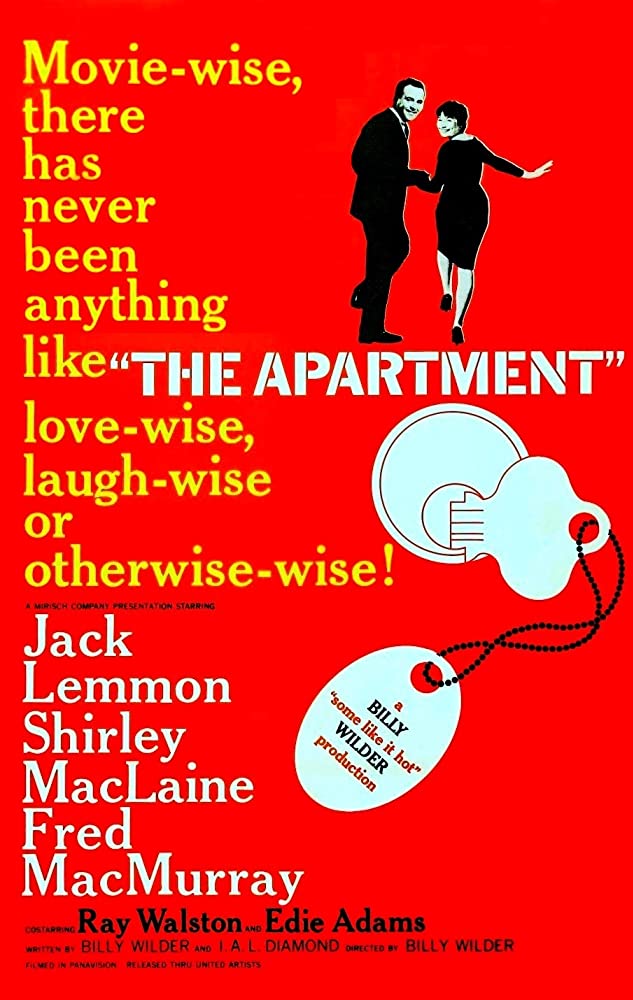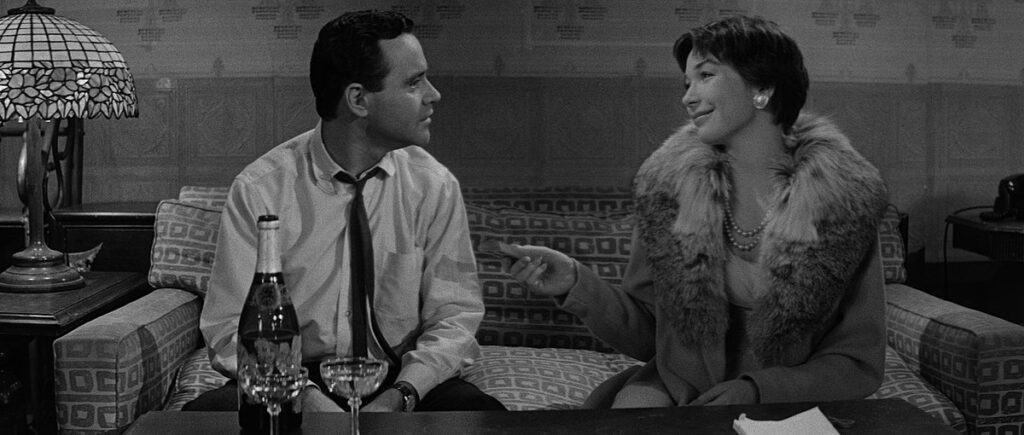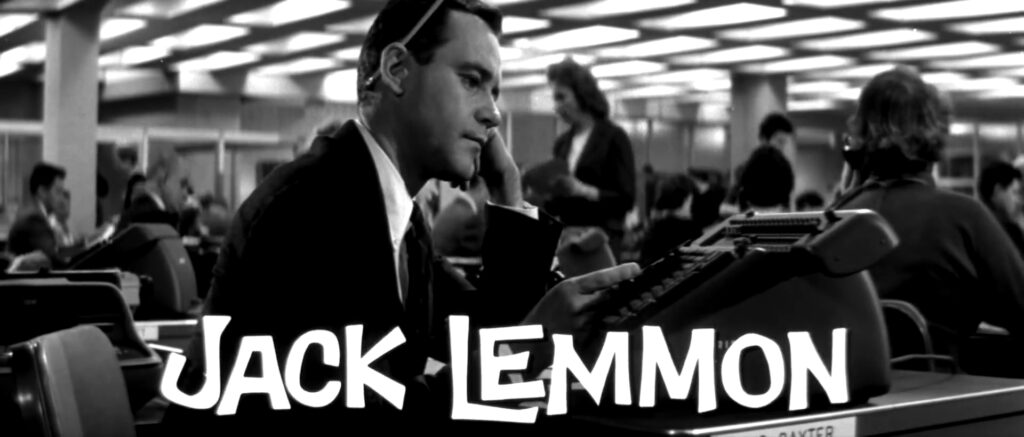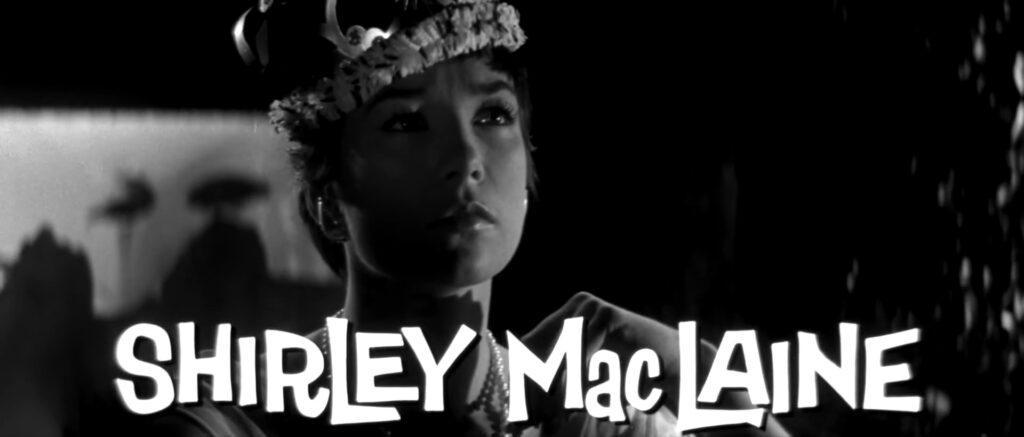
A near timeless film

The Apartment (1960) marked quite a turn in American Cinema. During the 50s, movies making social commentary or dealing with dark issues were so sanitized that you now come to the end of them and say “that’s what that’s supposed to be about?”
Just some examples of 50s watering down are: Peyton Place (incest and suicide), East of Eden (touches on prostitution), Suddenly Last Summer and Cat on a Hot Tin Roof (homosexuality), From Here to Eternity (adultery and prostitution), Love is a Many Splendored Thing (miscegenation and adultery). They were so cleaned up that they couldn’t explore the issues they were trying for. 60 to 70 years later most of them are nearly unwatchable.
The Apartment marked a departure from this, dealing with it’s issues of adultery and suicide head on. By not blunting their message, the film tied into basic human emotions and needs which everyone can identify with no matter what the era. The result was a near timeless classic.
Social commentary stymied by the era
Dark themes weren’t new. But before The Apartment came along they had evolved. The late 1940’s had seen the advent of “the message picture.” These featured explorations of certain social issues that weren’t necessarily controversial. They have been described as morality plays in which the lead character is taken on a journey and must choose between good and evil at the end. The Lost Weekend was about alcoholism, Crossfire and Gentleman’s Agreement were about anti-Semitism.
Westerns and Science Fiction had been used for years to disguise social and political commentary. Most Sci-Fi films of this era were disguising commentary about the Cold War, and Westerns like High Noon were disguising commentary about McCarthyism. There were films were allowed to just barely touch on dark subjects: Johnny Belinda (rape) and A Place in the Sun (abortion) were allowed to barely hint at these, but only enough so the audience would understand what they were talking about. But they weren’t allowed to truly explore the subjects.
Hollywood starts to press the boundaries
The 50s showed a progression towards covering controversial or darker issues within the overall context of films. While they tried, they were all still hampered by the Production Code. Two films, Love is a Many Splendored Thing (1955) and Sayonara (1957) marked stepping stones of sorts. The first pushed everything to the absolute limits of the time, but still ended up being hampered. Once it had pushed the boundary, Sayonara took it further. By 1960, the pump was sort of primed for The Apartment to take it another giant step forward.
The Apartment breaks new ground
The Apartment featured fairly blunt for the times discussions and depictions of adultery and attempted suicide. In the hands of Billy Wilder the film managed to be comedic and dramatic while also blending the two to perfection. You never seem taken aback when things move from one to the other. Two of the big keys to this are Shirley MacLaine and Jack Lemmon. They both created characters that were impossible not to love, particularly Lemmon.
Jack Lemmon
In Lemmon’s hands, the dilemmas faced by CC Baxter don’t come across as calculated or self serving. Wilder shows us the moral conflict and manipulation he suffered. He’s been cornered and taken advantage of rather than calculatingly using it to further his career. It’s impossible not to sympathize and identify with him. Under Lemmon, CC is shown to be true of heart and shows real integrity at the end.
Shirley MacLaine
MacLaine had the hardest job of all. As an adulterer, Fran Kubelik could have been portrayed as an emotional and moral train wreck. A woman of low virtue. A floozy. MacLaine makes her soft, tender and caring. She’s just the elevator operator who got herself into a situation. A situation that more than a few could imagine themselves in. More than anything, as an audience member you want her to end up with CC, and CC shares that sentiment. This also makes for strong audience commitment to the characters.
Fred MacMurray
Wilder cast Fred MacMurray as the leading antagonist. This was when he had begun appearing in Disney movies, and also starred in his t.v. series My Three Sons. Only then did MacMurray’s squeaky clean, family man image came to be. Most forget that before this he played roles much closer to the one he did for Wilder in Double Indemnity. In The Apartment he is both hard and calculating without being cruel. He uses what some might remember as the Fred MacMurray charm to wonderful effect when manipulating CC Baxter. Unfortunately the film didn’t go well for his career, even though it should have.
Mother’s were taking their children to see MacMurray in The Apartment somehow thinking they would be getting the clean image. One mother came up to MacMurray at of all places Disneyland, slugged him in the head with her purse, and informed him that she had taken her children to “that dirty, dirty movie” and that she would never again go to a Fred MacMurray film. After she left, MacMurray turned to his wife and said “never again.” As wonderful as The Apartment was for him, he self relegated himself to squeaky clean roles for the rest of his career.
The Legacy of The Apartment
Sixty years later, the film still holds up phenomenally well. Only a few things here and there seem out of place, such as the semi-frequent use of the term “dames” to describe women. To be fair, that term had been used for decades prior to this. It’s completely out of place now. Hearing it definitely made me flinch more than once. This is why I only gave it four and a half stars. It’s the only perceivable flaw in the movie.
Reviews and Awards
As possibly expected, the reviews of the time came in mixed. Some seeing what we see now, and some who got hung up on the “dirty movie” aspect. The Apartment made six million dollars at the box office (not an insignificant number at the time) and was nominated for ten Academy Awards, including for its magnificent black and white cinematography, and Lemmon and MacLaine’s performances. The film won Best Picture, Director and Screenplay awards for Billy Wilder. Surprisingly, it’s well remembered score was not even nominated.
Wilder’s Gamble
The Apartment was Wilder’s follow up to Some Like it Hot the previous year. He took a big chance choosing this material in the aftermath of the film most now call the greatest comedy of all time. Wilder won three Oscars in one night and almost certainly played a huge part in the progression towards ending the Hayes Code in 1968. Wilder broke ground. The films of the 50’s did their best to butt up against the barrier. They laid the groundwork for The Apartment to make the giant leap forward. Looking back, many will be surprised that an American film from 1960 was as straightforward as it was when dealing with sensitive issues. Don’t be. They were trying all along.
(this video is in the Public Domain)











